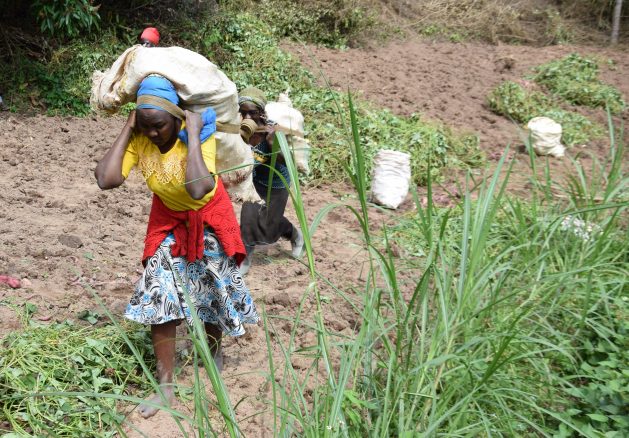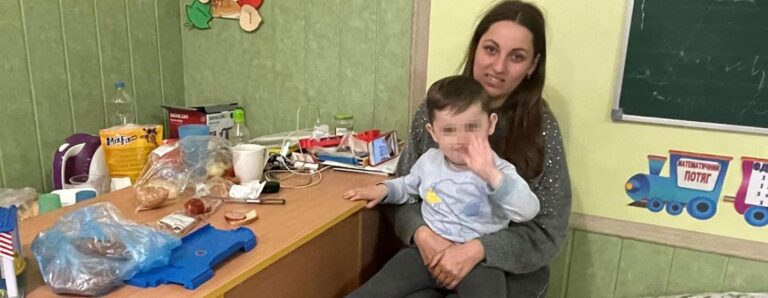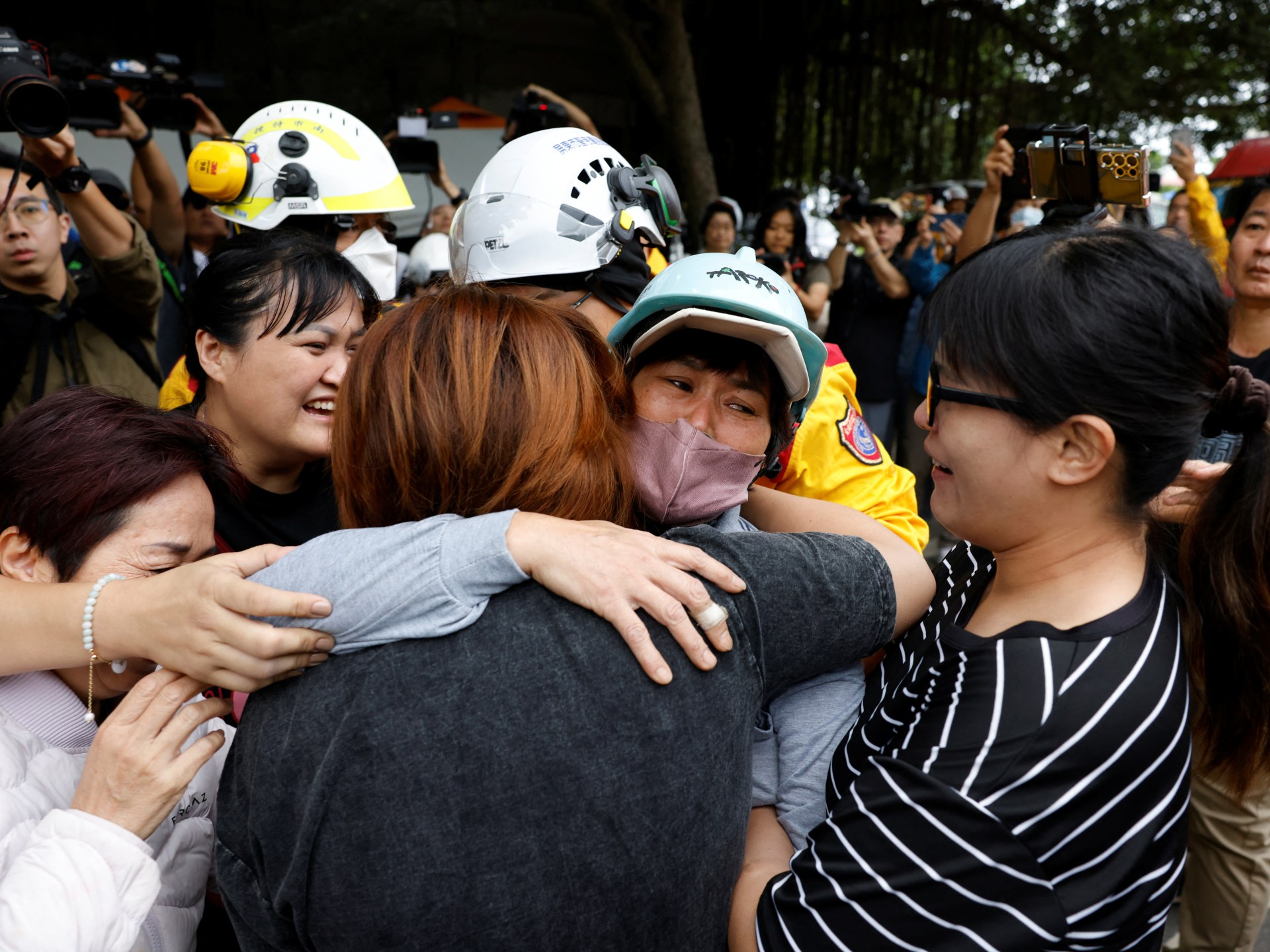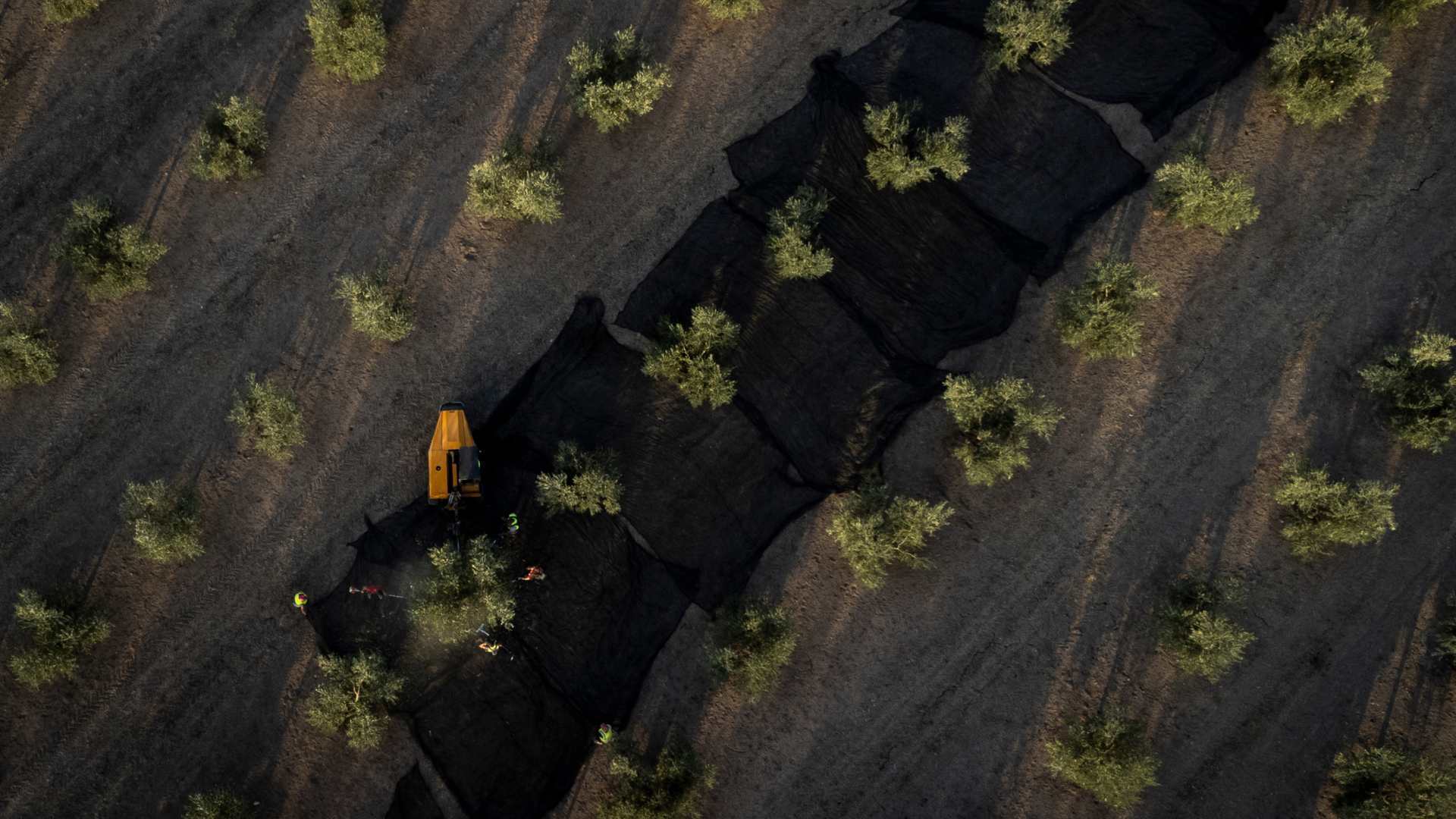Women Correct Historical Injustices, Build Climate Resilience Through Cash Pooling — Global Issues
NAIROBI, Oct 31 (IPS) – Excluded by inheritance and ignored by big business, women farmers in Kenya are turning to innovative methods to become independent food producers and get the financial backing to ensure their success.
Creating resilience is crucial to adapting to climate change and ensuring climate justice.
Although women account for more than three-quarters of the agricultural labour force and manage 40 percent of small-scale farms, historically, they neither owned nor controlled the land because land rights were passed down to male relatives. It is a historic gender injustice whereby women could only access land through close male relatives.
But as the vagaries of drought wreak havoc in the agricultural sector due to more failed rainfall seasons – with 2022 alone showing signs of a serious hydrological and ecological drought – gender and climate experts, such as Grace Gakii, tell IPS that women’s decision-making powers are much needed to ensure that extreme weather patterns do not paralyse the agricultural sector.
“The agriculture sector is the backbone of Kenya’s economy. It accounts for an estimated 33 percent of the country’s GDP and employs at least 40 percent of its population and 70 percent of the rural population. Without land rights, women cannot make the necessary decisions to either adapt or mitigate climate change,” she says.
“In mitigation, they cannot, for instance, decide if and when trees are planted. In adaptation, they have no say in, for instance, shifting to more climate-resilient crops. We have no shortage of indigenous seeds to help us navigate the rainfall deficit we are increasingly experiencing. But women have historically been denied the power to make these decisions even though it is women who provide the day-to-day farm labour.”
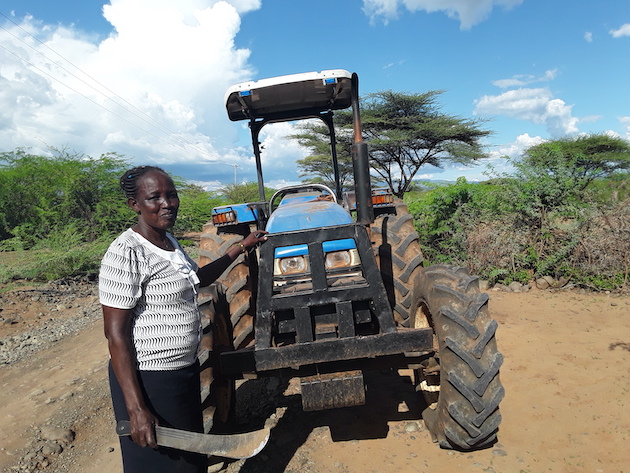
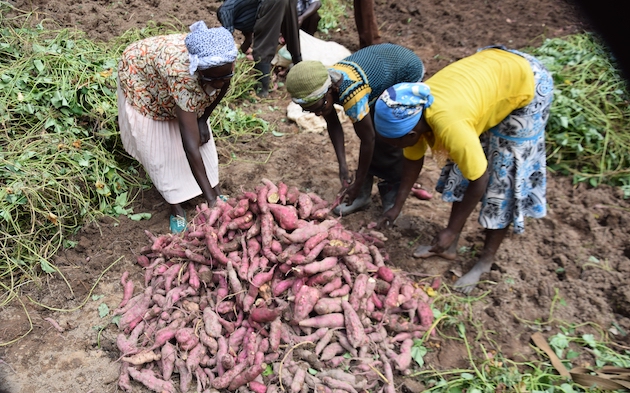
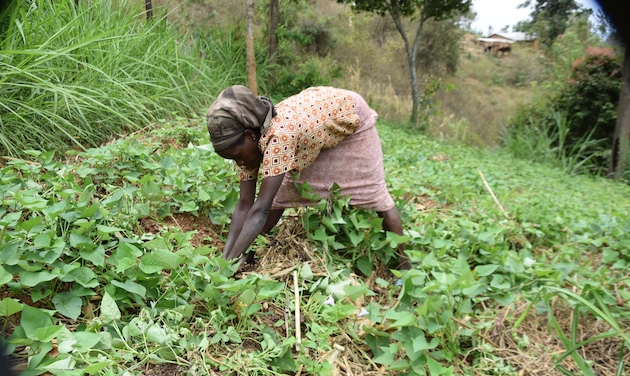
Serah Nyokabi says the revolutionary Savings and Credit Cooperative Society (SACCO) is increasingly putting land rights in the hands of women and facilitating access to the tools needed to build climate-resilient farming and food systems.
“I am a member of Afya SACCO. We save and take loans at a low interest. I use the loans to hire land in Central Kenya for farming and buy items such as seeds, fertilizer and even water. We rely on rainfall, and these days you cannot tell when it will rain, and even when it rains, it is often not enough. I also hire people to help me around the farm because I am a full-time teacher. SACCOs also buy large pieces of land, subdivide, and sell to members. I bought a piece of land this way, and they allow you to pay in small amounts over a six-month period,” she tells IPS.
SACCOs are a cash pooling scheme by a group of people to save and borrow low-interest loans amongst themselves. Kenya’s SACCO sector is popular and on an upward trajectory. Recent reports show that accumulated total deposits of savings grew from USD 3.8 billion in 2021 to USD 4.2 billion in 2022 (Ksh 564.89 billion to Ksh 629.45 billion)– representing a 9.84 percent increase. In 2021, the total membership of regulated SACCOs was 5.99 million members compared to 6.42 million members in 2022, and this represented an increase of 7.02 percent.
Gakii says that regulated SACCOs represent about half of all SACCOs in Kenya, as many others are unregulated. She says there are at least 22,000 SACCOs and more than 14 million members overall in this East African nation, transacting billions every year amongst themselves. Some SACCOs, such as Afya SACCO, have thousands of members and others less than 100 members.
Others, such as the well-known Muungano (cooperative) Women’s Group, own prime land and a fully occupied commercial high-rise building in Ongata Rongai on the outskirts of Nairobi, have an all-female membership, and many others, such as Afya SACCO have both men and women as members. Muungano Women’s Group raises about USD 40,000 in rent per month from the Ongata Rongai commercial building, which is fully occupied, and members have also purchased prime land of their own.
“SACCOs are very important to women. They were shunned by banks because the profile of a Kenyan woman was too risky. The percentage of women in gainful employment was very low because many worked for their husbands or fathers in the informal settlements. Due to our customary laws that favour men over women, women did not own property or any assets and therefore lacked the collateral needed to take out bank loans. In fact, women could only open a bank account accompanied by a male relative, preferably her husband. SACCOs have helped women navigate these challenges as all they need is to save with a SACCO, produce three guarantors within the SACCO to take a loan or simply borrow against their own savings,” Gakii explains.
Although the percentage of women holding land title deeds is still very small, as only one percent of all land title deeds are in the hands of women alone and five percent held jointly with men, Gakii stresses that this is progress and is to be celebrated.
“We have another large category of women that hire land for commercial farming. This would not have been possible without the loans from schemes such as SACCOs,” she says.
Gakii says women need access and control over land to play a much-needed role in the five pillars of climate resilience, including threshold capacity, coping capacity, recovery capacity, adaptive capacity, and transformative capacity.
“I taught agriculture in secondary schools for many years, and during that time, I had access to the small farm at the school for practical sessions, but back home, I could only execute the instructions from my husband. He was an accountant, and I was essentially the farmer, but he made all the decisions. Women interact with the soil on a day-to-day basis, but they cannot make decisions about how to best address the climate crisis. The result is a serious food crisis. We have large tracks of fertile lands, but here we are with a begging bowl,” Nyokabi observes.
“We started by experiencing floods and droughts in close succession. In 2018, we had two extremes in one season, whereby March, April and May were very rainy, followed by a very dry season in October, November, and December. Last month we were repeatedly warned to prepare for El Niño in the October-November-December season, but now we have been told that there will be no El Niño. In fact, there is no rain at all, and yet we are in the short rain season where we plant in October and harvest in December-January. The person who is more likely to note these changes and see a pattern is the one who is doing the day-to-day farming activities, and so the role of women in building resilient farming systems cannot be ignored.”
With an estimated 98 percent of agriculture in Kenya being rainfed and as climate change becomes a most pressing issue as a result of cumulative rainfall deficits over many years, the role of women in building climate resilience cannot be overemphasized, as is the need for interventions that can facilitate women’s access to land rights and much-needed farm inputs.
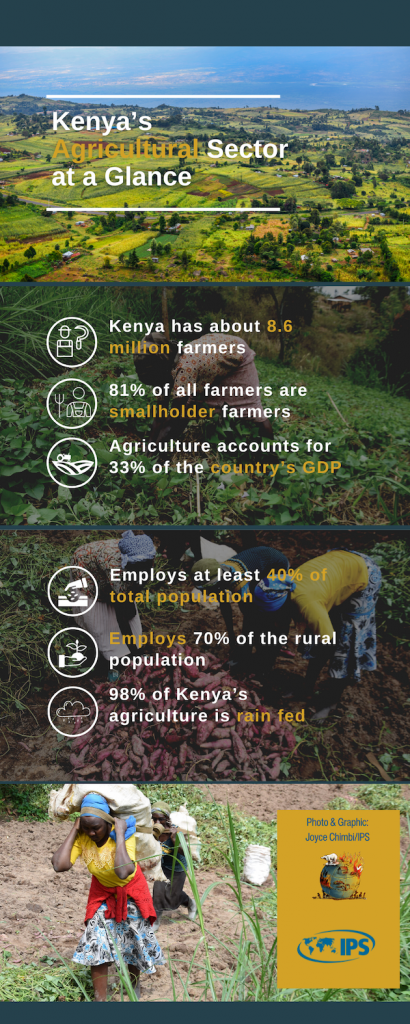
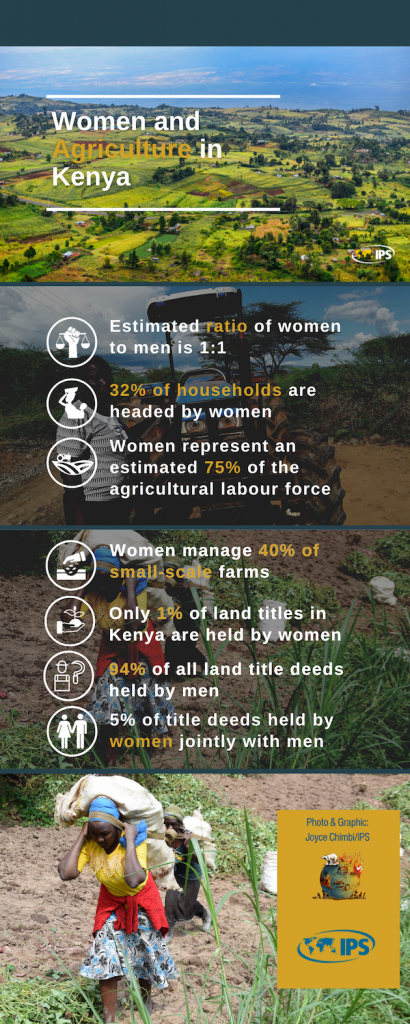
IPS UN Bureau Report
Follow @IPSNewsUNBureau
Follow IPS News UN Bureau on Instagram
© Inter Press Service (2023) — All Rights ReservedOriginal source: Inter Press Service
Check out our Latest News and Follow us at Facebook
Original Source

